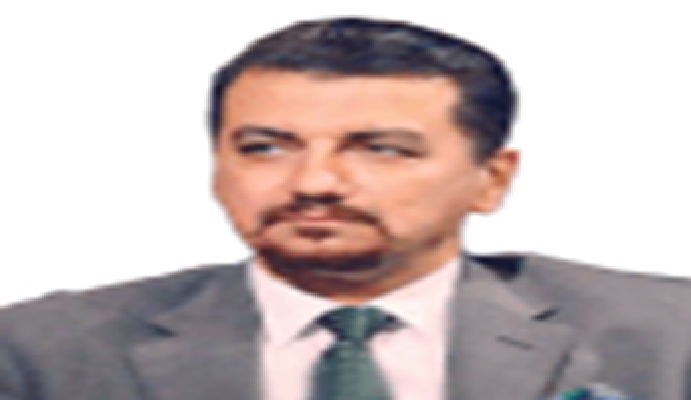
Afrasianet - Dr. Bassel Hussein - In the cold corners of the maps of influence, where geographic lines overlap patterns of domination, principles identify with interests, and shadows match in the sunset, Donald Trump's presence on the foreign policy scene was nothing but a tumultuous intrusion into a system that has long been captive to protocol traditions and institutional formulations.
The man came not as a reformist voice trying to reproduce the world, but as a balance-bearer of the deal by which he wants to measure the size of the gains rather than the depth of transformations, and to subject the logic of change to the rules of the market and not to the perspectives of values or theories of democratic transition.
In this context, Trump's Middle East doctrine was not one in the sense that we used to do with Truman, Carter, or Bush, but a philosophical case that opposed all the previously called the moral commitment of American diplomacy.
Trump has established an approach based not on exporting political models or interventionist change, but on redefining legitimacy through expediency rather than legitimacy, and on neutralizing democracy as a costly factor rather than a guaranteed strategic investment.
In a world of bargain paradigm, Trump has decided to distance his country's policy from the logic of modernizing tutelage, replacing the "who will govern" rhetoric with the rhetoric of how to govern without disturbing interests.
Here, his philosophy manifests itself as an outright rejection of open transformational projects, a conscious choice of employable stability, and a cautious pragmatism that does not take up the ideology of change as much as it seeks strategic understanding.
Perhaps this logic culminated during his last visit to the Middle East in May 2025, where his tours between Riyadh, Abu Dhabi, and Doha seemed a pivotal moment in reproducing American political language, not as a resumption of a project of missionary reform, but as a shift towards structural realism that measures relations with the criterion of stability and consensus.
In Riyadh, he clearly stated that the so-called democratic project in both Baghdad and Kabul was nothing but a losing adventure that exhausted effort and resources without producing viable or replicable models.
On the other hand, he presented an alternative vision based on understanding with the existing regimes according to a balanced formula that preserves mutual interests and exempts both parties from the cost of dictation or value clash.
By the same logic, he expressed a clear appreciation for what he called "the effectiveness of stable governance patterns" that were able to provide a development environment, strategic partnerships, and coherent security contexts, without engaging in the controversy of political experimentation or the adventure of imported models.
Thus, its regional presence has been characterized by an increasing tendency to transform relations into contractual structures, based on major deals, from arms agreements to digital partnerships, reflecting a philosophy that sees the partner state as a rational actor rather than the subject of restructuring policies or external imposition.
Trump's philosophy in the Middle East is not just a circumstantial approach, but an integrated vision that elevates consensual stability and postpones questions of political transition indefinitely. It is an approach based not on traditional liberal values, but on the imperatives of regional balance and the management of influence within the engineering of flexible interests.
As this approach becomes holistic it becomes clear that the Trump doctrine was not a written document, but an implicit discourse shaped more by facts than by literature, and shaped more by results than by intentions.
It is not a call for inertiacy, but a systematic postponement of transformation that keeps the system of interests in a state of organized liquidity, without jumping into adventures of idlification or re-engineering societies.
While this logic is rooted in the background of current international relations, the American presence becomes conditioned not by proselytizing but by understanding, not by hegemony, but by the ability to adapt to reality as it is, not as it is intended to be.
Trump's Middle East doctrine, after all, does not represent a coup against American policy as much as it embodies its pragmatic climax, when values are reduced to return equations, and when regional files are managed like market deals, with a mixture of calculation and intuition, and a tendency that sees profitable stability as better than costly change.
In doing so, it does not establish a transitional period, but rather frames a new political time, in which the old rules are suspended and the previous certainties are under review, waiting for an international scene governed not only by principles, but by the balance of viability at the intersection of interests.

